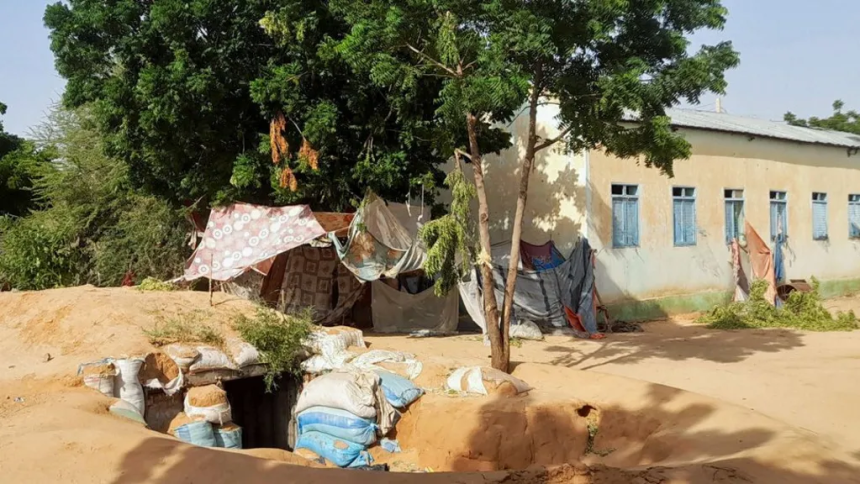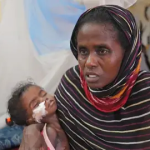Satellite images show how Sudan’s paramilitary Rapid Support Forces (RSF) is flouting international law by intentionally targeting civilians in the besieged city of el-Fasher – actions that should be considered war crimes, a research team from Yale University says.
“We’re looking at the growth of an entire new burial area with over 60 new mounds that have been built in just a two-week period,” Caitlin Howarth, from the university’s Humanitarian Research Lab (HRL), told the BBC.
People are now completely trapped with no hope of escape as the RSF recently completed a 57km (35-mile) earthen wall around the city.
Desperate residents in the army’s last stronghold in Darfur say food has run out.
“There is nothing left to eat today – all food supplies have run out,” the resistance committee for el-Fasher, made up of local citizens and activists, said in a statement on Tuesday.
“Even the alternatives that people clung to for survival have disappeared,” it said, referring to “ambaz”, a residue of peanuts after oil has been extracted, which is normally fed to animals.

Sudan plunged into a civil war in April 2023 after a vicious struggle for power broke out between the military and the RSF.
Since the conflict erupted, RSF fighters and allied Arab militia in Darfur have been accused of targeting people from non-Arab ethnic groups.
El-Fasher came under siege 18 months ago and a communications blackout makes it difficult to confirm information from the city as only those with satellite internet connections are contactable.
The resistance committee warned that time was running out for the estimated 300,000 people who still live in the city.
“We write, we scream, we plead; but it seems our words fall into a void,” it said. “There are no aid planes, no humanitarian airlifts, no real international movement and no ground efforts to break the siege.”
Community kitchens have had to stop providing meals to people seeking refuge in shelters, traders inside the city told the Sudan Tribune news website.
They added that all food goods had completely disappeared even from shops, which used to get smuggled stock to sell at exorbitant prices.


Ms Howarth told the BBC’s Newsday programme that in the last few months civilians had been driven by the RSF from the displacement camps around el-Fasher and other neighbourhoods by arson and in some cases by what looked like “house-to-house clearance operations”.
They were now in their last places of refuge in “increasingly smaller zones”, concentrated in shelters at mosques, near hospitals and markets – areas that were undergoing repeated bombardment.
Satellite images showed “burn scars” where specific buildings had been targeted with “horrific” results, according to Ms Howarth.
“We had air-deployed munitions – this could be a combination of drone and artillery that came in… through the roofs, exploding on impact and then burning everything that was within those structures,” she explained, adding that ground sources had told them the people inside had been “burned alive”.
The Yale HRL researchers found that over the last month attacks included those on two shelters, one of which was also a community kitchen, two mosques, one hospital and one market – killing at least 174 people and wounding at least 123 people.
“These incidents include only those that HRL corroborated through either remote sensing, open source documentation, or a combination of both methods and are likely an undercount,” its report said.
“These actions are prima facie war crimes and may rise to the level of crimes against humanity.”
The researchers also identified that between 26 September and 10 October, at least 60 burial mounds were created in a new cemetery in the Daraja Oula neighbourhood, one of the only areas still under the control of the army and their allies, local armed groups known as the Joint Forces.
Ms Howarth said there were now only four RSF-controlled exits out of the city.
“There should be calls for the immediate cessation of these hostilities, for civilians to be allowed to immediately and safely depart el-Fasher without harassment, without taxation, without the risk of extrajudicial execution,” she said.
“And aid and humanitarian aid access should be allowed completely in without any threat of bombardment or attack.”















